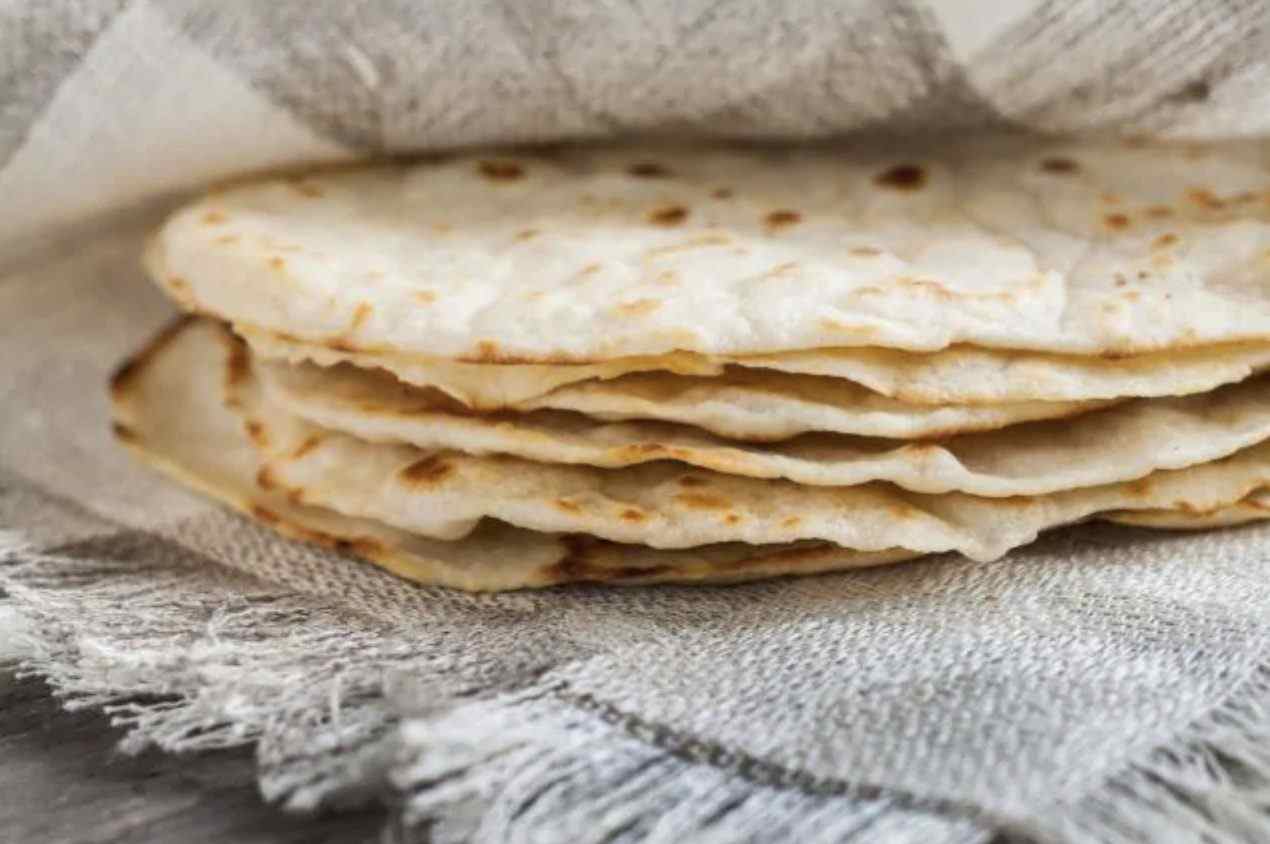Leviticus 2 Symbolism
|
Sacrificial Offerings |
Gratitude and obedience |
|
Flour or Corn |
Jesus Christ is the Bread of Life |
|
Oil |
Holy Spirit |
|
Frankincense |
Fragrance of prayers ascending to heaven |
|
Yeast |
Impurity/sin |
|
Salt |
Covenant with God |
|
Firstfruits |
Resurrection of Christ |
Leviticus 2:1-11 offer a meat offering unto the Lord
Every time you see the term meat offering in the Old Testament, think of it as a meal offering. It is either bread or flour and oil; it does not mean the flesh of cattle, sheep, or fowl as we think of meat today. Certainly, the priests were offering the meat of cattle, sheep, fowl, etc., but a meat offering in the Old English is different.
Leviticus 2:1 his offering shall be of fine flour; and he shall pour oil upon it, and put frankincense thereon
Flour isn’t much good if you don’t have some oil to mix with it to make bread. The frankincense however was likely added for a pleasing aroma, continuing the theme that the smell of the sacrifice should rise like a prayer to heaven, a sweet smell unto the Lord.
But no leaven (yeast) was allowed. Leaven represented impurity that was not allowed for the priest. Nor could anything impure be allowed to be offered to God; for no unclean thing can enter God’s presence nor can God look upon sin with the least degree of allowance. (D&C 1:31) The symbolism reminds us that all our offerings to God should be without the least bit of impurity—that means no holding back, no resentment, no guile, no harboring of secret sins.
Leviticus 2:2-3 the remnant of the meat offering shall be Aaron’s and his sons
The priests are sustained with the money and food offered by the temple patrons. They would only offer a small portion of the flour/oil or bread offering. The rest was theirs to eat. They must have loved tortillas and flatbread because that was all they could do without yeast.

Joseph Smith
It is a very prevalent opinion that the sacrifices which were offered were entirely consumed. This was not the case; if you read Leviticus, 2:2-3, you will observe that the priests took a part as a memorial and offered it up before the Lord, while the remainder was kept for the maintenance of the priests; so that the offerings and sacrifices are not all consumed upon the altar—but the blood is sprinkled, and the fat and certain other portions are consumed.
These sacrifices, as well as every ordinance belonging to the priesthood, will, when the temple of the Lord shall be built, and the sons of Levi be purified, be fully restored and attended to in all their powers, ramifications, and blessings. This ever did and ever will exist when the powers of the Melchizedek Priesthood are sufficiently manifest; else how can the restitution of all things spoken of by the holy prophets be brought to pass? (Discourses of the Prophet Joseph Smith, compiled by Alma P. Burton [Salt Lake City: Deseret Book Co., 1977], 57 - 58)
Leviticus 2:4-7 a meat offering baken in the oven
Apparently, the way in which the bread offering was cooked was not important. You want to bake it in the oven? You can bake it in the oven. You want to bake it in the pan? You can bake it in the pan. You want to fry it in the pan? You can fry it in the pan.

The important part is that the bread offered represents the Bread of Life. Jesus said, “I am that bread of life… if any man eat of this bread, he shall live for ever: and the bread that I will give is my flesh, which I will give for the life of the world” (John 6:48, 51). So the flour had to be fine to represent the purity of the offering.
What about the oil? Oil nearly always represents the Spirit, signifying the gift of the Holy Ghost which Jesus promised his disciples after his resurrection (John 14:26)
“As would be anticipated, the ritual is rich with symbolism. This bread offering obviously represented Christ as the bread of life. The fine flour, or bruised corn as Isaiah called it (Isaiah 28:28), represented Christ in the deepest of suffering. It may also betoken that there is no unevenness in him. The oil was the constant emblem of the Holy Spirit. As the oil was poured on the flour, so the Holy Ghost would descend upon the Messiah or Anointed One as he commenced his ministry. Frankincense brought to the offering sweetness and fragrance. All were inseparably mixed together. Honey and leaven were forbidden, for these are agents of corruption, and none such were to touch the symbol of our salvation. The last ingredient was salt, which stood in opposition to honey and leaven, as the agent of preservation.” (Joseph Fielding McConkie, Gospel Symbolism [Salt Lake City: Bookcraft, 1999], 88)
Leviticus 2:11 no leaven, nor any honey, in any offering
“Some think the chief reason why those two things, leaven and honey, were forbidden, was because the Gentiles used them very much in their sacrifices, and God's people must not learn or use the way of the heathen, but his services must be the reverse of their idolatrous services; see Deu. 12:30, 31. Some make this application of this double prohibition: leaven signifies grief and sadness of spirit (Ps. 73:21), My heart was leavened; honey signifies sensual pleasure and mirth. In our service of God both these must be avoided, and a mean observed between those extremes; for the sorrow of the world worketh death, and a love to the delights of sense is a great enemy to holy love.” (https://www.blueletterbible.org/Comm/mhc/Lev/Lev_002.cfm)
Leviticus 2:12-13 every oblation of the firstfruits… shalt thou season with salt
The firstfruits would have included corn, grapes, figs, dates, etc. The priests must have loved these offerings as a welcome alternative to unleavened bread.
The Jews were also required to bring in the first bushels of crops as an offering to the Lord. Some of it was offered as a burnt offering and the rest was for the priests. The salt was required with every offering as a preservative. The Jews of Galilee knew this when the Master taught them, “Ye are the salt of the earth: but if the salt have lost his savour, wherewith shall it (the offering) be salted? It (the offering) is thenceforth good for nothing, but to be cast out, and to be trodden under foot of men.” (Matt. 5:13)
The term firstfruits again points to Christ, the “firstfruits of them that slept.” As Paul said, “But now is Christ risen from the dead, and become the firstfruits of them that slept” (1 Cor. 15:20)
Leviticus 2:13 the salt of the covenant of thy God . . . with all thine offerings thou shalt offer salt
“In the ancient world, ingesting salt was a way to make an agreement legally binding. If two parties entered into an agreement, they would eat salt together in the presence of witnesses, and that act would bind their contract. King Abijah’s speech in 2 Chronicles 13:5 mentions just such a salt covenant: “Don’t you know that the LORD, the God of Israel, has given the kingship of Israel to David and his descendants forever by a covenant of salt?” Here, Abijah refers to the strong, legally binding promise of God to give Israel to David and his sons forever.
“The Old Testament Law commands the use of salt in all grain offerings and makes clear that the “salt of the covenant” should not be missing from the grain offerings (Leviticus 2:13). Since the Levitical priests did not have land of their own, God promised to provide for them via the sacrifices of the people, and He called this promise of provision a “salt covenant” (Numbers 18:19). Salt has always been known for its preservative properties, and it is also possible that God instructed the use of salt so that the meat would last longer and taste better—and thus be of more value to the priests who depended upon it for their daily food.
“The idea of a salt covenant carries a great deal of meaning because of the value of salt. Today, salt is easy to come by in our culture, and we don’t necessarily need it as a preservative because of refrigeration. But to the people of Jesus’ day, salt was an important and precious commodity. So, when Jesus told His disciples that they were “the salt of the earth,” He meant that believers have value in this world and are to have a preserving influence (Matthew 5:13).
“The salt covenant is never explicitly defined in the Bible, but we can infer from the understanding of salt’s value and the contexts in which a salt covenant is mentioned that it has much to do with the keeping of promises and with God’s good will toward man.” (https://www.gotquestions.org/salt-covenant.html)
